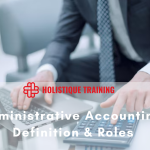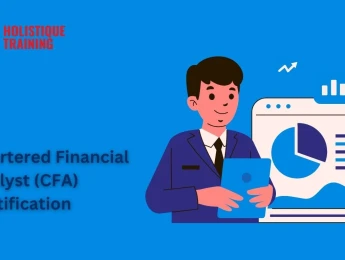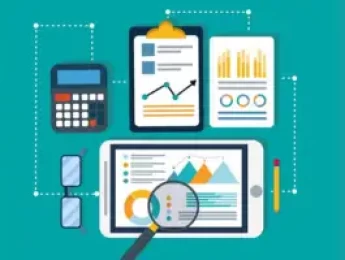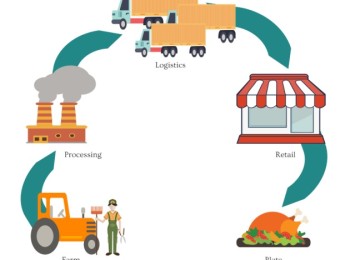A professional accounts assistant is a key role in any organisation. Their main job is to keep track of finances, company accounts, invoicing, and taxes to ensure the business stays ahead of the game.
An accounts assistant must understand the wider operation and how it relates to the company’s finances. They will also need to generate productive and beneficial working relationships with partners and stakeholders and work with suppliers to maintain the best deals for products and services.
It is important to maintain excellent customer service and communicate with partners or suppliers. Also important are organising diaries and meetings and filing paperwork effectively and efficiently to keep all company accounts in order.
The professional accounts assistant course will develop your working knowledge of internal accounts, taxation, purchasing and ledger keeping to ensure inventory is always up to date and payments are made on time. This keeps your business above competitors and gives you a good reputation with suppliers and customers to ensure future company growth.
Upon completion of this course, participants will be able to:
- Develop a working knowledge of how finances affect the wider operation.
- Create a prioritisation matrix for record-keeping and account management.
- Understand accounting terminology and make informed and strategic decisions to improve your organisation’s processes.
- Upgrade your communication and negotiation skills and maintain a positive relationship with suppliers and partners.
- Develop your analytical skills and highlight when you predict potential problems based on reporting.
- Read and accurately interpret financial information from reports.
- Review various company financial data to recognise trends and make positive changes in your organisation.
This course is designed for anyone responsible for managing company accounts or finances. It would be most beneficial for:
- Business Owners
- Trainee Accountants
- Directors
- Financial Professionals
- Chief Financial Officers
- HR Professionals
- Payroll Associates
This course uses various adult learning methods to aid full understanding and comprehension. Participants will review various accounting systems and technologies to understand the benefits of each. They will then review real-world accounting methods and conduct group discussions to ask and answer common questions relating to accounting.
Interactive workshops containing mock figures and accounts will help groups familiarise themselves with their newly learned tools and techniques. A final feedback session will determine how their new working knowledge may benefit their organisation. Finally, participants will create an action plan to develop the next steps within their role.
Day 5 of each course is reserved for a Q&A session, which may occur off-site. For 10-day courses, this also applies to day 10
Section 1: Your Role as an Accounting Assistant
- What an accounting assistant can do for a company.
- Making recommendations based on accurate information.
- Competitor review and reset.
- Record-keeping and understanding financial information.
- Developing your communication and maintaining a positive reputation.
- Organisation, delegation, and prioritisation.
Section 2: The Various Types of Accounting Information
- What is classified as financial information?
- The different types of financial information.
- Your company information flowcharts.
- Your deliverables.
- Understanding where financial information comes from.
- Popular accounting terminology.
- Your reporting formats and changes.
Section 3: Cash Style & Procedures
- Cash vs. profits.
- Your cash flow and balance matrix.
- Your cash management systems.
- Payment collection and processing.
- Changing your processes and communication methods.
- Customer and supplier relationships.
- Where your financial statements come from.
- Basic statement layouts.
Section 4: Accurate Record-Keeping & IT Solutions
- Data analysis and creating accurate reports.
- Record-keeping solutions through IT.
- Making an informed decision on record-keeping systems.
- Cloud-based solutions.
- Transferring a record-keeping system.
- Understanding automation.
- Forward-thinking data upkeep.
Section 5: Inventory & Fixed Assets
- Your company’s inventory and stock levels.
- Understanding how to keep a level inventory to maintain profit and growth.
- Completing inventory information.
- Valuation techniques and best-practice solutions.
- Fixed assets and records.
- Asset depreciation and coping mechanisms.
- Physical verification of assets.
Section 6: Creating Useful Financial Statements
- Comprehending profits and losses.
- Profitability ratios.
- Balance sheets and upkeep.
- Financial ratios and competitor information.
- Creating useful financial statements.
- Company comparisons and statement completion.
Section 7: Your Budget & Costing
- Classifying your financial standards.
- Cost-benefit analysis and methodology.
- Forecasting techniques and reliability.
- Departmental budgeting and operational changes.
- Performance vs. budget.
- Your personal action plan.
Upon successful completion of this training course, delegates will be awarded a Holistique Training Certificate of Completion. For those who attend and complete the online training course, a Holistique Training e-Certificate will be provided.
Holistique Training Certificates are accredited by the British Assessment Council (BAC) and The CPD Certification Service (CPD), and are certified under ISO 9001, ISO 21001, and ISO 29993 standards.
CPD credits for this course are granted by our Certificates and will be reflected on the Holistique Training Certificate of Completion. In accordance with the standards of The CPD Certification Service, one CPD credit is awarded per hour of course attendance. A maximum of 50 CPD credits can be claimed for any single course we currently offer.
- Course Code PF1-115
- Course Format Classroom, Online,
- Duration 5 days














